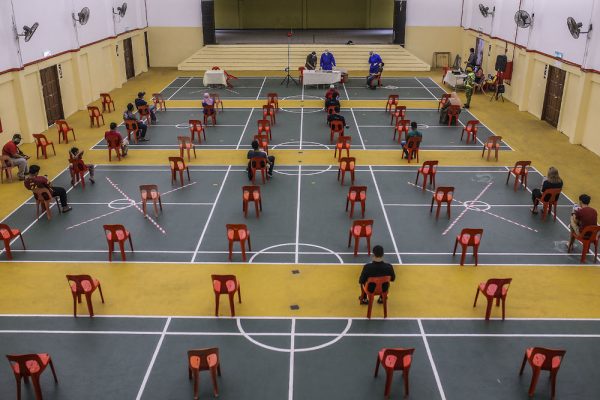Measures should ensure Malaysians are gainfully employed during crisis and
enable population to live alongside virus in the long-term
Media Statement by Raja Ahmad Iskandar Fareez, Communications Director, Research for Social Advancement (REFSA).
The government’s recent Economic Recovery and People’s Protection Package (Pemulih) may be construed as a misnomer as it does not provide enough relief to protect people and businesses from the devastating impact of prolonged lockdowns, let alone set Malaysia up on a course towards recovery.
Meanwhile, the situation on the ground is dire and worsening by the day. Businesses are folding, Malaysians are dipping into their hard-earned savings while the government keeps asking people to break their emergency and retirement funds through i-Sinar, i-Lestari, and i-Citra withdrawals. This is especially concerning since 6.3 million out of 15 million of EPF’s member base have less than RM10,000 in their Account 1, while 9.3 million people have less than RM10,000 in Account 2 1.
As growing reports of Malaysians being pushed to the brink of despair, concerned netizens are taking matters into their own hands by kickstarting the “raise the white flag” initiative for those who are in dire need of food and essentials. If this continues, how long are we expected to last?
REFSA has continuously emphasised that the key to surviving the long-term fight against this pandemic is protecting Malaysian livelihoods. Yet, measures to enable people to make a living and businesses to operate safely are missing from Pemulih and the other eight preceding packages. If the government is sincerely aiming to work towards economic recovery and protecting everyday people, it has to start with mobilising the following measures:
Spend more to contain Covid-19 in a targeted manner
- Testing and Tracing – Persistently high new cases (5,464 daily average) 2 demonstrate that a lockdown in itself does not bring down transmissions. We have to conduct mass testing to uncover hidden infections within our community and hire more contact tracers to thoroughly identify close contacts. Concurrently, work towards digitising these tasks to increase efficiency.
- Isolation & Support – With the aid of technology and updated guidelines, adopt a decentralised quarantine approach with strict and systematic enforcements. Provide medical and economic assistance to affected parties to compensate for loss of income. Employers of foreign workers should have the option to quarantine patients in their own quarters, as long as the dwelling meets the requirements and patients are given the necessary equipment and guidelines to self-monitor.
Invest to build capabilities of living alongside Covid-19
- Healthcare Capacity – The government should invest more to strengthen the capacity of our healthcare system. Private healthcare sector should also be co-opted to treat Covid-19 cases as part of the national ‘whole of society’ strategy against the disease. With the Delta variant wreaking havoc in many countries and potentially many more variants emerging, our national healthcare infrastructure needs to be able to handle more positive patients, especially in terms of ICU availability. In that sense, frontliners’ wellbeing must be upheld, and they should be compensated fairly. Thus, complaints against the government’s contract scheme for junior doctors that led up to the upcoming strike (#HartalDoktorKontrak) must also be addressed.
- “Pandemic proofing” practices – Gradually enable businesses to operate with updated guidelines and protocols backed by science and data. Financial incentives should be given to aid businesses to pandemic proof workspaces and living quarters according to these guidelines. Periodic subsidised testing can be employed to control transmission at workplaces. The same principle can be employed to reopen other sectors such as retail, education, social, and other public spaces to ensure Malaysians can safely earn a living.
We at REFSA, along with other experts, have repeatedly emphasised that a blanket lockdown is an extremely costly and destructive measure to handle Covid-19 outbreak. Even then, it only acts as a buffer to prevent straining of our healthcare infrastructure and does little to reduce cases and transmissions in itself.
The government should opt for a more systemic and surgically precise measure in getting the outbreak under control. Along with saving lives, protecting livelihoods should also be a top priority. These two priorities should not be considered as trade-offs as health and economics are deeply intertwined.
Malaysians need to make a living safely. Otherwise, tragically, many of us might not survive to see the end of this pandemic.
[1] The Edge: Withdrawal of Account 1 shook EPF to its core, says Amir, 24 June
[2] 7-day average as of 28 June
— Published in Malay Mail on 29 June 2021.

